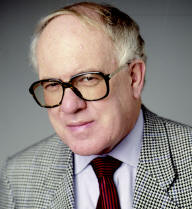The Editor's View Feb 2004
Magazine

John Jenkins' monthly column from Writers' Forum magazine
Zero Tolerance on Punctuation
Dreary but Clean Pierre. . .
Hands off our Emma
NOTHING is more irritating than careless punctuation and worst of the culprits is the writer who sprinkles them in like confetti regardless of style, grammar or even common sense. You may think that apostrophes are the main source of annoyance. It all depends on your point of view.
Many years ago, when children had to read aloud, the rules were simple: you paused for a count of one for a comma, two for a semi-colon, three for a colon and four for a full stop. That seemed simple enough and for years it served me well.
Well enough until I learned that different publications adopted different styles, long and short.
In one you put commas around subordinate clauses thus: An elderly woman, who three years ago had a lung removed, dived into Poole harbour yesterday to save a boy from drowning. Simple. But another paper would insist that these commas were unnecessary and would not have them. It’s not a question of right or wrong, just one of style.
Both versions make admirable sense.
Easily the best book on the subject is a recent volume by Lynne Truss: Eats, Shoots and Leaves: the Zero Tolerance Approach to Punctuation published by Profile Books at £9.99. (ISBN 1-86197-612-7). She quotes some wonderful examples where the positioning of a comma alters the sense.
Consider the following.
Verily, I say unto thee, This day thou shalt be with me in paradise and
Verily I say unto thee this day, Thou shalt be with me in paradise.
Hence, I believe, that commas should only be used when they are essential to the meaning. Or as I prefer to write. Hence I believe that commas should only be used when they are essential to the meaning.
You will recall that Peter Carey won the Booker prize a few years ago with a book which did not contain a single comma. Oscar Wilde could and did spend a day on deciding whether to put a comma into a poem.
Lawyers don’t like them in legal documents and a famous Chief Sub Editor was also of the no-comma school, once berating a poor sub editor for wanting to put extra commas in a proof he was correcting.
I once parted with hard-earned cash for a creative writing course, but left after the fourth session when the tutor spent an hour on the use of the semi-colon.
For some reason he did not believe me when I told him that the semi-colon was a 16th century invention by Aldus Manutius, a printer in Venice. He also invented the italic typeface and his name is still in use today.
Of course there is a hangover from the Sixties that punctuation and spelling matter not at all. Really?
Try this:
A woman, without her man, is nothing.
A woman: without her man is nothing.
‘Nuff said.
OUR BOOKER prize winner has not gone down too well in the United States. The August New York Times (all the news that’s fit to print) is distinctly sniffy. The title of the winner was Vernon God Little by the oddly named conman Dirty But Clean Pierre.
"Given the novel’s clumsy contrivance and its dogged reliance on insulting American stereotypes, that assessment probably says more about British attitudes towards the United States than about literary tastes."
Hang about NYT, Pierre, Clean or Dirty, is not British. He claims to be more Tex-Mex than British. And the Booker judges are not infallible. The book has struggled up to fourth in our list of best-sellers but is setting no records.
STILL in the Land of the Free (except Guantanamo Bay) there’s a new book out on the infamous McCarthy Communist witch-hunt era that drove many Hollywood personalities out of work and in some cases abroad.
Fortunately that couldn’t happen today, could it? Then why are some Americans demanding a new blacklist to contain the names of stars who have spoken out against the war in Afghanistan and Iraq? Names like Tim Robbins, Susan Sarandon, Danny Glover, Sean Penn and Johnny Depp.
Blacklisted: the Film Lover’s Guide to the Hollywood Blacklist by Paul Buhle and David Wagner is published by Palgrave Macmillan at £16.99 (ISBN 1-4039-6145-X).
FAY WELDON has considerable talent and I don’t mind too much if she writes an outrageously commercial novel based on a product to make a buck. After all, she was an advertising copywriter.
But her considerable talent is minuscule compared with Monsieur Flaubert who wrote one of the great books of all time in Madame Bovary. Flighty Fay has re-done MB for the stage and despite Amanda Drew’s wonderful performance at the Lyric, Hammersmith as Emma, the whole thing comes across as subtle as an Emmerdale storyline told by Relate.
It would be difficult to think of anybody who could successfully translate MB to the stage. John Mortimer, perhaps?
John Jenkins, Publisher, Writers' Forum
Read the article about setting up WritersServices which was originally published in Writers' Forum magazine.
© Writers International Ltd 2004. Reproduced from the December-January edition of Writers' Forum magazine by kind permission of the editor.
